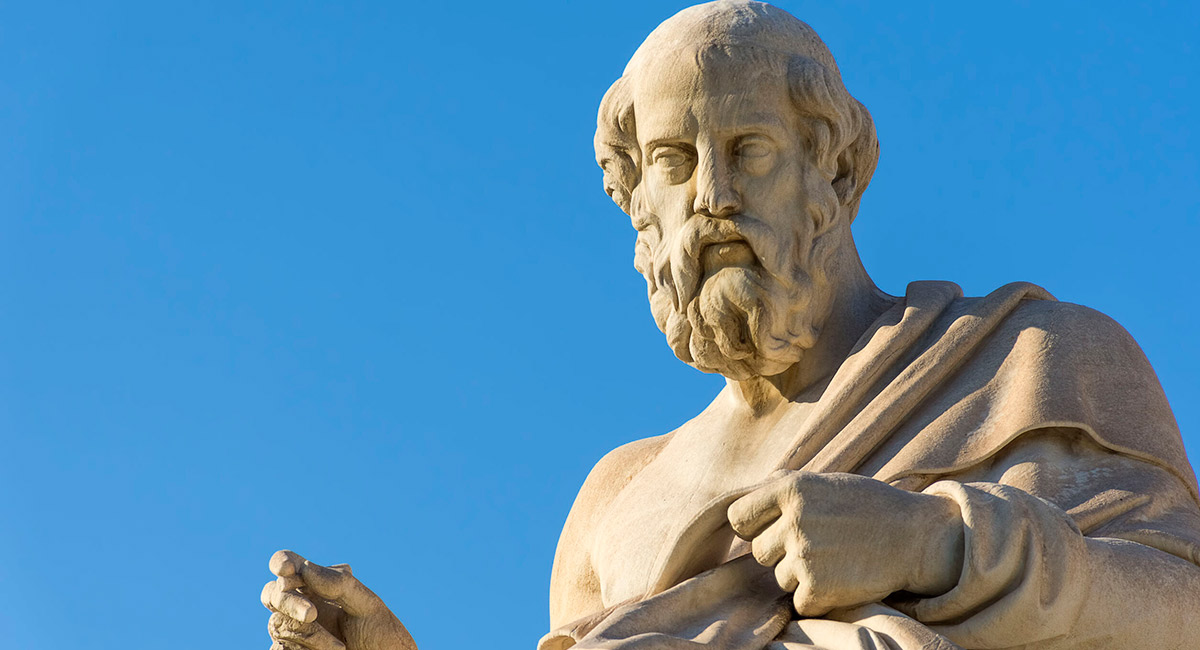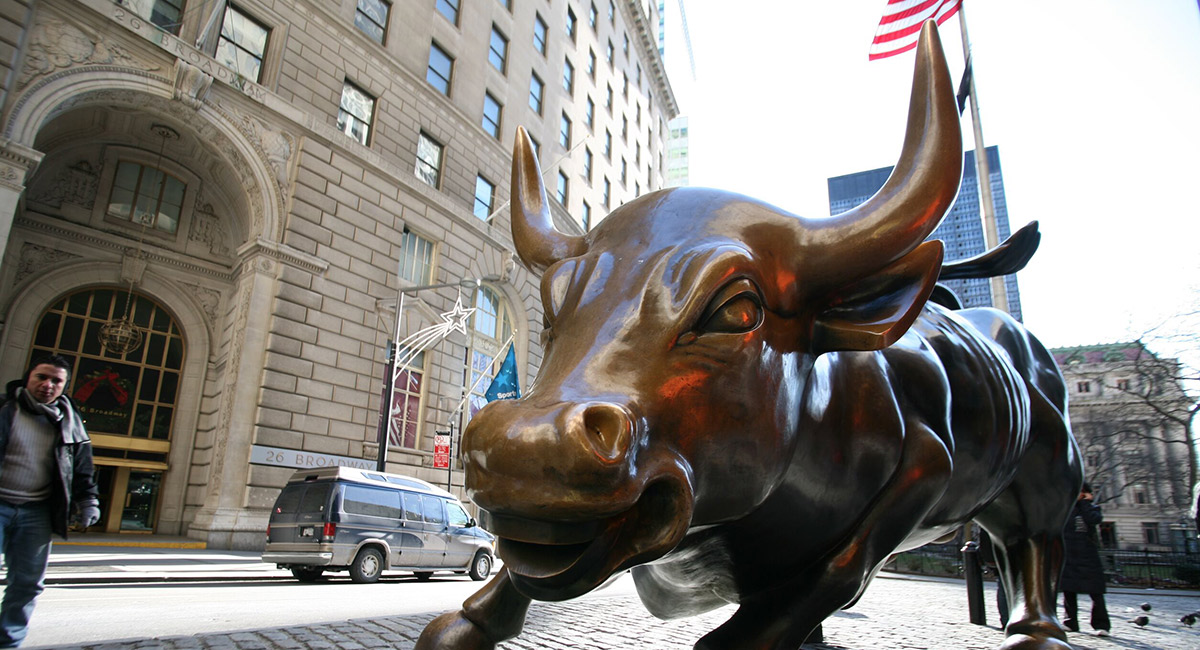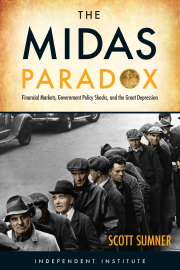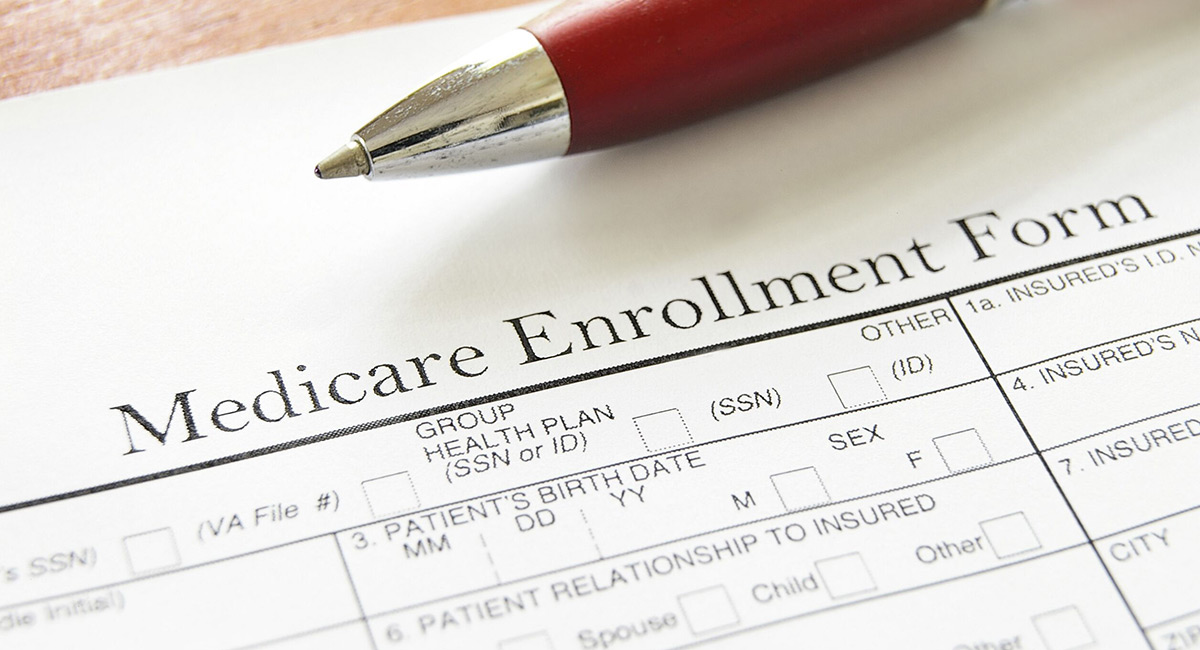The Lighthouse®
 In a controversial passage in Plato’s Republic, Socrates introduced the idea of the “noble lie” (gennaios pseudos). A majestic fiction, he says, could sometimes serve society by persuading uninformed citizens of something good for them. Ever since, many prevaricators have used the excuse that they lied for the common good. In other words, “noble lies” are rarely spun for anyone’s interests other than those of the liars themselves.
READ MORE »
In a controversial passage in Plato’s Republic, Socrates introduced the idea of the “noble lie” (gennaios pseudos). A majestic fiction, he says, could sometimes serve society by persuading uninformed citizens of something good for them. Ever since, many prevaricators have used the excuse that they lied for the common good. In other words, “noble lies” are rarely spun for anyone’s interests other than those of the liars themselves.
READ MORE »

By Stephen P. Halbrook (SCOTUS Blog)
 New York State Rifle & Pistol Association v. Bruen concerns whether New York may condition the right to carry a firearm on an official’s finding of “proper cause.” “Proper cause” means an exceptional need, and it excludes, for example, residence in a high-crime area. Possession of an unlicensed, loaded handgun subjects one to 15 years of incarceration. The court should decide the case based on text, history, and tradition, the methodology it applied in District of Columbia v. Heller holding that a ban on handguns in the home violates the Second Amendment. In Heller, the court eschewed an “interest-balancing” test under which judges “decide on a case-by-case basis whether the right is really worth insisting upon,” and it should do the same here.
READ MORE »
New York State Rifle & Pistol Association v. Bruen concerns whether New York may condition the right to carry a firearm on an official’s finding of “proper cause.” “Proper cause” means an exceptional need, and it excludes, for example, residence in a high-crime area. Possession of an unlicensed, loaded handgun subjects one to 15 years of incarceration. The court should decide the case based on text, history, and tradition, the methodology it applied in District of Columbia v. Heller holding that a ban on handguns in the home violates the Second Amendment. In Heller, the court eschewed an “interest-balancing” test under which judges “decide on a case-by-case basis whether the right is really worth insisting upon,” and it should do the same here.
READ MORE »

By George Gilder (National Review)
 Anyone determined to provide a “new economics” must haul a heavy burden of proof up a steep slope of professional resistance. At the summits of academic prestige, economics presents a Delphic façade of math and marble. A still higher barrier faces anyone suggesting major modification to the entrenched system of reasonably free markets and economic incentives associated with “capitalism.” Within recent memory, exponents of free markets were celebrating a triumphalist “end of history.”
READ MORE »
Anyone determined to provide a “new economics” must haul a heavy burden of proof up a steep slope of professional resistance. At the summits of academic prestige, economics presents a Delphic façade of math and marble. A still higher barrier faces anyone suggesting major modification to the entrenched system of reasonably free markets and economic incentives associated with “capitalism.” Within recent memory, exponents of free markets were celebrating a triumphalist “end of history.”
READ MORE »

By Alexander William Salter (The Wall Street Journal)
 Inflation is higher than it has been in a decade, and households and businesses are fretting over their diminished purchasing power. Monetary-policy makers insist price hikes are transitory, but there is pressure on the Federal Reserve to begin tapering. Many expect the Fed will reduce bond purchases by $15 billion a month starting in November. Monetary-policy normalization is a good thing, and we should be eager for the Fed to revert to pre-Covid operations. But tapering isn’t a panacea for surging prices, because widespread supply-chain problems, which are out of the central bank’s control, are contributing to price increases.
READ MORE »
Inflation is higher than it has been in a decade, and households and businesses are fretting over their diminished purchasing power. Monetary-policy makers insist price hikes are transitory, but there is pressure on the Federal Reserve to begin tapering. Many expect the Fed will reduce bond purchases by $15 billion a month starting in November. Monetary-policy normalization is a good thing, and we should be eager for the Fed to revert to pre-Covid operations. But tapering isn’t a panacea for surging prices, because widespread supply-chain problems, which are out of the central bank’s control, are contributing to price increases.
READ MORE »

By John C. Goodman (Forbes)
 From the earliest days of Obamacare, many progressives argued for a public option. The idea was simple: let a government-run plan compete on a level playing field against private insurance. Progressives believed that the public plan would be less costly, because it wouldn’t have to earn a profit and because of their general faith that government does things better. And they were willing to put their convictions to the market test. If government subsidies to the public plan are the same as subsidies to the private plans, then consumer sovereignty, not bureaucratic preference, would determine the outcome. Our experience with Medicare however shows that when a public plan competes against modern integrated health plans, the elderly and the disabled migrate to the private sector. Progressives don’t like that result, and their plans to change it will make us all worse off.
READ MORE »
From the earliest days of Obamacare, many progressives argued for a public option. The idea was simple: let a government-run plan compete on a level playing field against private insurance. Progressives believed that the public plan would be less costly, because it wouldn’t have to earn a profit and because of their general faith that government does things better. And they were willing to put their convictions to the market test. If government subsidies to the public plan are the same as subsidies to the private plans, then consumer sovereignty, not bureaucratic preference, would determine the outcome. Our experience with Medicare however shows that when a public plan competes against modern integrated health plans, the elderly and the disabled migrate to the private sector. Progressives don’t like that result, and their plans to change it will make us all worse off.
READ MORE »
By Richard K. Vedder (Forbes)
 After 2020, truly an annus horribilis for American higher education, most veteran observers thought college enrollment would start growing again this fall. Preliminary data from the National Student Clearinghouse show it did not, with undergraduate numbers down over three percent from last fall’s already depressed, count. But this is not just pandemic-related: American collegiate enrollments today are down meaningfully from a decade ago, 2011.
READ MORE »
After 2020, truly an annus horribilis for American higher education, most veteran observers thought college enrollment would start growing again this fall. Preliminary data from the National Student Clearinghouse show it did not, with undergraduate numbers down over three percent from last fall’s already depressed, count. But this is not just pandemic-related: American collegiate enrollments today are down meaningfully from a decade ago, 2011.
READ MORE »
The Lighthouse® is the weekly email newsletter of the Independent Institute.
Subscribe now, or browse Back Issues.
Volume 24, Issue 43: November 3, 2021
By Victor David Hanson (American Greatness) In a controversial passage in Plato’s Republic, Socrates introduced the idea of the “noble lie” (gennaios pseudos). A majestic fiction, he says, could sometimes serve society by persuading uninformed citizens of something good for them. Ever since, many prevaricators have used the excuse that they lied for the common good. In other words, “noble lies” are rarely spun for anyone’s interests other than those of the liars themselves.
READ MORE »
In a controversial passage in Plato’s Republic, Socrates introduced the idea of the “noble lie” (gennaios pseudos). A majestic fiction, he says, could sometimes serve society by persuading uninformed citizens of something good for them. Ever since, many prevaricators have used the excuse that they lied for the common good. In other words, “noble lies” are rarely spun for anyone’s interests other than those of the liars themselves.
READ MORE »
Crisis and Leviathan
Critical Episodes in the Growth of American Government (25th Anniversary Edition)
Critical Episodes in the Growth of American Government (25th Anniversary Edition)
By Robert Higgs
By Stephen P. Halbrook (SCOTUS Blog)
 New York State Rifle & Pistol Association v. Bruen concerns whether New York may condition the right to carry a firearm on an official’s finding of “proper cause.” “Proper cause” means an exceptional need, and it excludes, for example, residence in a high-crime area. Possession of an unlicensed, loaded handgun subjects one to 15 years of incarceration. The court should decide the case based on text, history, and tradition, the methodology it applied in District of Columbia v. Heller holding that a ban on handguns in the home violates the Second Amendment. In Heller, the court eschewed an “interest-balancing” test under which judges “decide on a case-by-case basis whether the right is really worth insisting upon,” and it should do the same here.
READ MORE »
New York State Rifle & Pistol Association v. Bruen concerns whether New York may condition the right to carry a firearm on an official’s finding of “proper cause.” “Proper cause” means an exceptional need, and it excludes, for example, residence in a high-crime area. Possession of an unlicensed, loaded handgun subjects one to 15 years of incarceration. The court should decide the case based on text, history, and tradition, the methodology it applied in District of Columbia v. Heller holding that a ban on handguns in the home violates the Second Amendment. In Heller, the court eschewed an “interest-balancing” test under which judges “decide on a case-by-case basis whether the right is really worth insisting upon,” and it should do the same here.
READ MORE »
The Right to Bear Arms
A Constitutional Right of the People or a Privilege of the Ruling Class?
A Constitutional Right of the People or a Privilege of the Ruling Class?
By Stephen P. Halbrook
By George Gilder (National Review)
 Anyone determined to provide a “new economics” must haul a heavy burden of proof up a steep slope of professional resistance. At the summits of academic prestige, economics presents a Delphic façade of math and marble. A still higher barrier faces anyone suggesting major modification to the entrenched system of reasonably free markets and economic incentives associated with “capitalism.” Within recent memory, exponents of free markets were celebrating a triumphalist “end of history.”
READ MORE »
Anyone determined to provide a “new economics” must haul a heavy burden of proof up a steep slope of professional resistance. At the summits of academic prestige, economics presents a Delphic façade of math and marble. A still higher barrier faces anyone suggesting major modification to the entrenched system of reasonably free markets and economic incentives associated with “capitalism.” Within recent memory, exponents of free markets were celebrating a triumphalist “end of history.”
READ MORE »
Future
Economic Peril or Prosperity?
Economic Peril or Prosperity?
Edited by Robert M. Whaples, Christopher J. Coyne, Michael C. Munger
By Alexander William Salter (The Wall Street Journal)
 Inflation is higher than it has been in a decade, and households and businesses are fretting over their diminished purchasing power. Monetary-policy makers insist price hikes are transitory, but there is pressure on the Federal Reserve to begin tapering. Many expect the Fed will reduce bond purchases by $15 billion a month starting in November. Monetary-policy normalization is a good thing, and we should be eager for the Fed to revert to pre-Covid operations. But tapering isn’t a panacea for surging prices, because widespread supply-chain problems, which are out of the central bank’s control, are contributing to price increases.
READ MORE »
Inflation is higher than it has been in a decade, and households and businesses are fretting over their diminished purchasing power. Monetary-policy makers insist price hikes are transitory, but there is pressure on the Federal Reserve to begin tapering. Many expect the Fed will reduce bond purchases by $15 billion a month starting in November. Monetary-policy normalization is a good thing, and we should be eager for the Fed to revert to pre-Covid operations. But tapering isn’t a panacea for surging prices, because widespread supply-chain problems, which are out of the central bank’s control, are contributing to price increases.
READ MORE »
The Midas Paradox
Financial Markets, Government Policy Shocks, and the Great Depression
Financial Markets, Government Policy Shocks, and the Great Depression
By Scott Sumner
By John C. Goodman (Forbes)
 From the earliest days of Obamacare, many progressives argued for a public option. The idea was simple: let a government-run plan compete on a level playing field against private insurance. Progressives believed that the public plan would be less costly, because it wouldn’t have to earn a profit and because of their general faith that government does things better. And they were willing to put their convictions to the market test. If government subsidies to the public plan are the same as subsidies to the private plans, then consumer sovereignty, not bureaucratic preference, would determine the outcome. Our experience with Medicare however shows that when a public plan competes against modern integrated health plans, the elderly and the disabled migrate to the private sector. Progressives don’t like that result, and their plans to change it will make us all worse off.
READ MORE »
From the earliest days of Obamacare, many progressives argued for a public option. The idea was simple: let a government-run plan compete on a level playing field against private insurance. Progressives believed that the public plan would be less costly, because it wouldn’t have to earn a profit and because of their general faith that government does things better. And they were willing to put their convictions to the market test. If government subsidies to the public plan are the same as subsidies to the private plans, then consumer sovereignty, not bureaucratic preference, would determine the outcome. Our experience with Medicare however shows that when a public plan competes against modern integrated health plans, the elderly and the disabled migrate to the private sector. Progressives don’t like that result, and their plans to change it will make us all worse off.
READ MORE »By Richard K. Vedder (Forbes)
 After 2020, truly an annus horribilis for American higher education, most veteran observers thought college enrollment would start growing again this fall. Preliminary data from the National Student Clearinghouse show it did not, with undergraduate numbers down over three percent from last fall’s already depressed, count. But this is not just pandemic-related: American collegiate enrollments today are down meaningfully from a decade ago, 2011.
READ MORE »
After 2020, truly an annus horribilis for American higher education, most veteran observers thought college enrollment would start growing again this fall. Preliminary data from the National Student Clearinghouse show it did not, with undergraduate numbers down over three percent from last fall’s already depressed, count. But this is not just pandemic-related: American collegiate enrollments today are down meaningfully from a decade ago, 2011.
READ MORE »The Beacon: New Blog Posts
- Biden’s Plan to “Tax The Rich” Will Cost the Middle Class, by Randall G. Holcombe
- Biden National Security Strategic Report Reveals Domestic Focus, by K. Lloyd Billingsley
- The National Debt in the Biden Era, by Craig Eyermann
- Anti-Authoritarian Authoritarians, by Randall G. Holcombe
- Retiring State Auditor Elaine Howle Is a Tough Act to Follow, by K. Lloyd Billingsley
Catalyst: New Articles
- Gen Z Americans Dread Biden’s Planned IRS Expansion, by Sean Themea
- It’s Time the Post Office Was Outsourced, by Scott Beyer
- Energy Crisis Deepens in the United Kingdom, by Paige Lambermont






